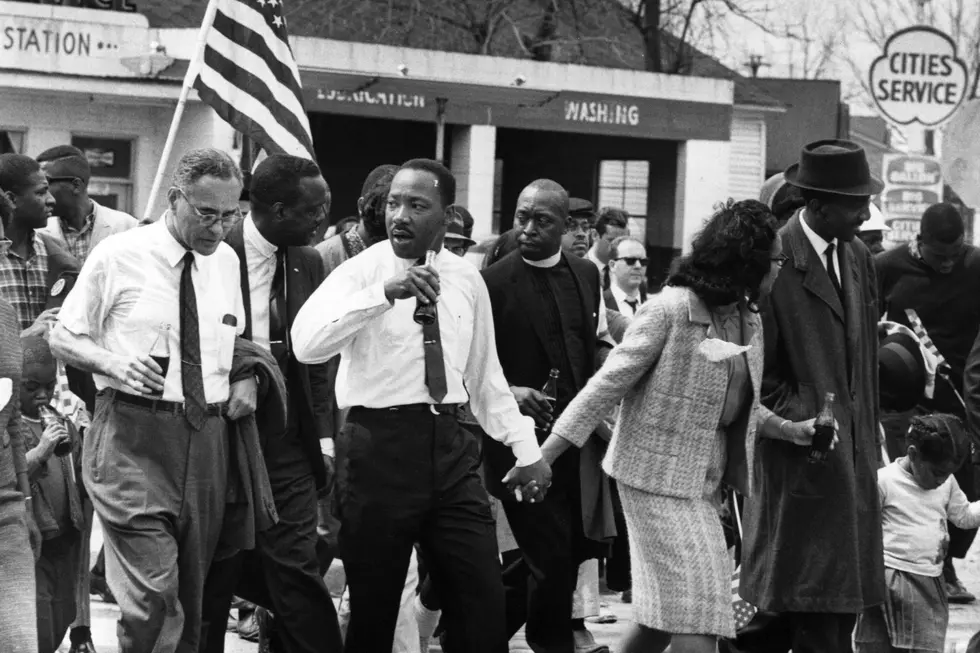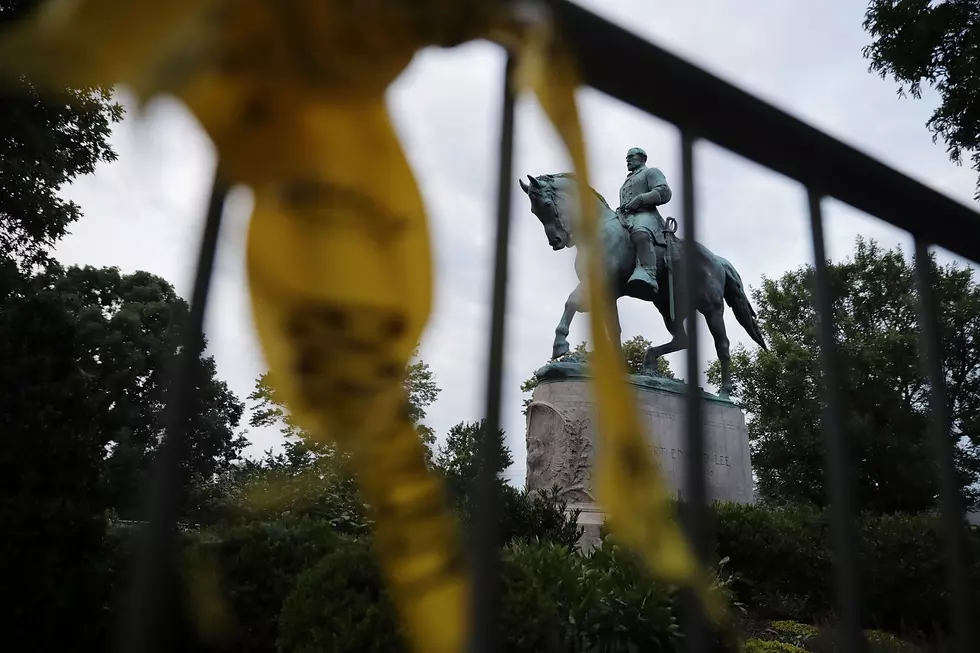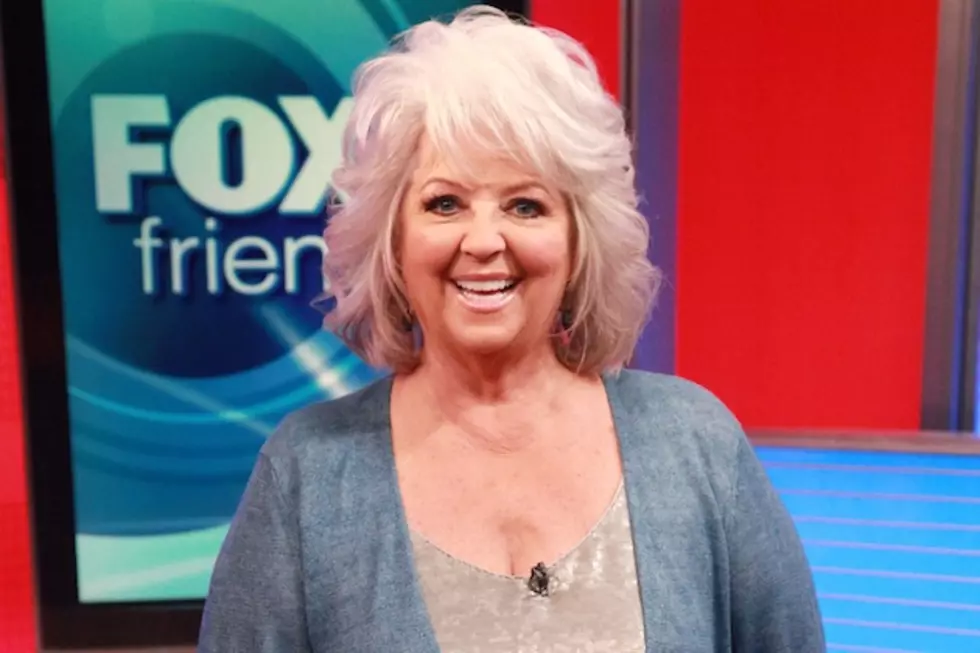![Writing The Rules Of Race And Privilege [VIDEO]](http://townsquare.media/site/519/files/2014/12/Los-Angeles-School-Tries-To-Fight-Campus-Violence-72546007-Credit-David-McNew-Getty-Images.jpg?w=980&q=75)
Writing The Rules Of Race And Privilege [VIDEO]
No matter where we live, racism and racial profiling are a major problem in America. If you don't believe me, just visit the Museum of Tolerance in New York or Los Angeles. Once you leave the facility, you'll understand that hate and prejudice are everywhere, even when we'd like to believe otherwise. If that isn't enough to wake you up, consider the big news stories that rocked our nation in recent years, including the deaths of Trayvon Martin, Tamir Rice and others. It is no wonder that concerned parents everywhere struggle to find ways to make sense of race and protect their children.
Recently, one father, Lawrence Otis Graham, appeared on Nightline to discuss the steps he's taking to protect his family. This Ivy League educated attorney and his investment banker wife have gone to great lengths to ensure that their sons and daughter would never face racism, or get shot or tasered simply because they were black. In addition to enrolling them in the best schools and giving them solid role models like the Obamas, he provided them with a set of rules that they should follow, including what they could and could not wear, how they should talk, where they should walk, and what they should do when entering any small store or business.
Despite all his efforts, however, Graham's 15-year-old son encountered racism when a car approached him at his New England boarding school. Two men leaned out of the car and glared at him. "Are you the only nigger at Mellon Academy*?" one shouted. This was the first time the youth encountered this type of blatant racism, and it really shook him up as he dropped his backpack and watched as the men laughed loudly then sped off down the street. The incident also rattled his father when he heard about it, because he wrote afterward in the Princeton Alumni Weekly, "My kids and I had it all figured out. Or so we thought."
So this raises the question: what can parents do to protect their children? In a culture where a growing number of people even fear the police, who are in place to defend and protect us, it may seem like there is little that can be done. Still, despite Graham's perhaps faulty rationale, I believe he was onto something. If each of us strive to respect, and earn the respect of others, in time change will come. But how long will it take?
I still remember one friend who served in the U.S. military during World War II telling me that after the war, it took him a long time to see Japanese Americans without his hackles going up. It had been so ingrained within him to hate the Japanese, that it was hard to turn that reaction off or at least tamper it down. But I always thought that was the fight we must all struggle to win, to learn to appreciate the diversity in our communities, to celebrate it, rather than to instantly let it become something to divide us.
Still, no matter how accepting I am of others, as a white man I know that I will never fully comprehend what it is like to be racially profiled, to live with the fear of being attacked strictly because of the color of my skin. And I say this even though growing up in the South when I saw the Ku Klux Klan burn a cross in a local park and restaurateurs refuse to serve my black friends and classmates when we went out to eat, despite the fact segregation had been outlawed years before.
Even when I was physically attacked in junior high school by a fellow classmate for being a "nigger lover," (a term I hate to write, and which still makes me cringe), I can't possibly fully grasp the reality of racism. Yet events I've lived through, like the riots in downtown Cincinnati or the underlying current of racism I've felt here on the South Coast when one ethnic group boasts that they are better than another, have all taught me something. I've learned that racism is contagious, and if we're not careful, it can be as infectious as Ebola, particularly if we refuse to acknowledge that there is a problem.
As a college student, I had the opportunity to meet and hear journalist Lisa Ling speak, and what she said that night has stayed with me. She said that she had interviewed everyone from world leaders to prison inmates on death row. In many situations, she had ample reason to be afraid. Yet she said that by focusing on everyone's humanity, on the things she had in common with her subject, she learned the person's story, and therefore learned to understand. That resonated with me, and I've carried that "rule" with me throughout my career.
Racism is an issue we can't afford to shy away from, or hide beneath the carpet simply because we don't want to face it. This is a topic we need to talk about candidly, and often, if we're to make a change in our culture. We must teach our children that we are a family of man, and implement the "rule" of respect. We have to show them that regardless of a person's address, education, job, skin color, dress, and diction, all humans are worthy of respect. Most of all, if we can set aside our prejudices long enough to learn what someone else has gone through, we will earn back our empathy and find reasons to envelop, rather than exclude, others from the rich, diverse culture that our forefathers sought to create so many years ago.
*The name of the boarding school has been fictionalized.
More From WFHN-FM/FUN 107








![Stevie Wonder Boycotts Performing in Florida Until ‘Stand Your Ground’ Law Is Eliminated [VIDEO]](http://townsquare.media/site/519/files/2013/07/steview.jpg?w=980&q=75)
